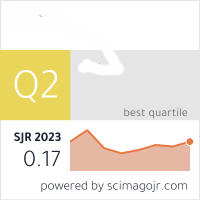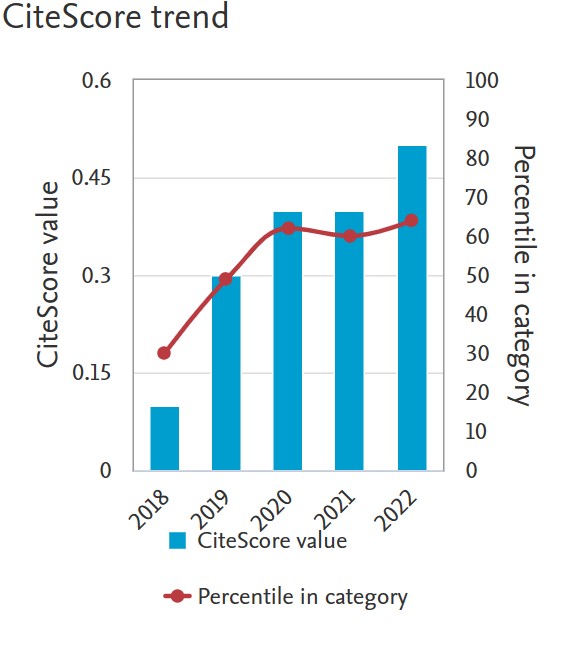Effect Of Vitamin D Correction in Depressed Patients with Metabolic Syndrome and Reflection of This on General Health
Keywords:
Vitamin D, Hypertension, Metabolic Syndrome, Depression, General HealthAbstract
Background: A person who has metabolic syndrome is more likely to experience diabetes, heart disease, and strokes. Vitamin D is a fat-soluble vitamin that is essential for maintaining healthy bones, immune system strength, and the control of insulin and glucose metabolism, among other physiological processes. Decreased vitamin D levels have been linked to an elevated likelihood of depression because vitamin D is crucial for healthy brain functioning. Aim: The current study's objective was to evaluate vitamin D levels in people with metabolic syndrome and depression and determine how their health would improve if their levels were raised. Method:100 depressed individuals with metabolic syndrome and vitamin D deficiency participated in the study, which was divided into two groups: 50 depressed patients with metabolic syndrome and vitamin D deficiency were placed in Group 1 and given antidepressants, diet control, and vitamin D replacement therapy. Group 2: 50 individuals suffering from depression who also had metabolic syndrome and a vitamin D deficiency underwent diet control and antidepressant treatment. Blood pressure, physical activities, and food habits were among the sociodemographic and clinical variables that were collected. The following laboratory tests were performed: liver functioning, renal functioning, fasting plasma glucose, lipid profile, vitamin D, and HbA1c. The cutoff point for vitamin D deficiency was <20 ng/mL. The clinical characteristics of vitamin D deficiency have been assessed. To evaluate depression, the Arabic version of the Beck Depression Inventory-II (BDI-II-ARABIC) was utilized. Results: The average age was 50.8 ± 6.6 years and 52.4 ± 6 years, with BMIs of 32.4 ± 2.4 kg/m2 and 32.7 ± 1.7 kg/m2, correspondingly, in the vitamin D as well as control groups. The baseline mean score of the BDIII scale was 19.55 ± 6.18 for the control group and 18.99 ± 5.95 for the vitamin D group with no significant differences between the groups (p=0.058). After 6 months of intervention, the mean score for the control group was 18.19 ± 4.17 and 16.77 ± 2.77 for the vitamin D group with a significant difference between the groups (p=0.039). By using the ANCOVA test for in-between groups comparison, there was a statistically significant difference (p=0.029). Following six months, there was a great significant difference between the control and vitamin D group according to weight loss, DM, HTN, dyslipidemia, and depression (p<0.001). There was a significant variation between the two groups in the mean increase of 25(OH) D serum levels (16.8 ± 5.8 ng/ml for the vitamin D group vs. 0.8 ± 4.4 for the control group, pvalue <0.001). The relationship between vitamin D deficiency and metabolic syndrome and hypertension stayed significant after controlling for physical activity and eating patterns. Conclusion: Although the extent, nature, and implications of this association are uncertain, vitamin D insufficiency has been associated with higher blood pressure, depression, and the metabolic syndrome, in particular.
Downloads
References
Parker, G.B., H. Brotchie, and R.K. Graham, Vitamin D and depression.
Journal of affective disorders, 2017. 208: p. 56-61.
Menon, V., et al., Vitamin D and depression: a critical appraisal of the
evidence and future directions. Indian journal of psychological
medicine, 2020. 42(1): p. 11-21.
Geng, C., et al., Vitamin D and depression: mechanisms, determination
and application. Asia Pacific journal of clinical nutrition, 2019.28(4):
p. 689-694.
Berridge, MJ., Vitamin D and depression: cellular and regulatory
mechanisms. Pharmacological reviews, 2017. 69(2): p. 80-92.
Boulkrane, M.S., et al., Vitamin D and depression in women: a mini¬
review. Current neuropharmacology, 2020. 18(4): p. 288-300.
Casseb, G.A., M.P. Kaster, and A.L.S. Rodrigues, Potential role of vitamin
D for the management of depression and anxiety. CNS drugs, 2019.
(7): p. 619-637.
Wong, S.K., K.-Y. Chin, and S. Ima-Nirwana, Vitamin D and depression:
the evidence from an indirect clue to treatment strategy. Current
drug targets, 2018. 19(8): p. 888-897.
Dogan-Sander, E., et al., Inflammation and the association of vitamin D
and depressive symptomatology. Nutrients, 2021. 13(6): p. 1972.
Bersani, F.S., et al., The relationship between Vitamin D and depressive
disorders. Rivista di Psichiatria, 2019. 54(6): p. 229-234.
Fond, G., et al., Hypovitaminosis D is associated with negative symptoms,
suicide risk, agoraphobia, impaired functional remission, and
antidepressant consumption in schizophrenia. European archives of
psychiatry and clinical neuroscience, 2019. 269: p. 879-886.
Alavi, N., et al., Comparison of Enzyme-Linked Immunosorbent Assay
and Chemiluminescence Immunoassay for Thyroid Stimulating
Hormone Analysis in Tertiary Care Hospital Lahore: Comparison of
ELISA & CLIA for TSH. Journal of Aziz Fatimah Medical & Dental
College, 2021. 3(2): p. 26-29.
Ghaderi, A., et al., Clinical and metabolic response to vitamin D plus
probiotic in schizophrenia patients. BMC psychiatry, 2019. 19(1): p.
-10.
Ronaldson, A., et al., Prospective associations between vitamin D and
depression in middle-aged adults: Findings from the UK Biobank
cohort. Psychological medicine, 2022. 52(10): p. 1866-1874.
Saklayen, M.G., The global epidemic of the metabolic syndrome. Current
hypertension reports, 2018. 20(2): p. 1-8.
Leere, J.S. and P. Vestergaard, Calcium metabolic disorders in pregnancy:
primary hyperparathyroidism, pregnancy-induced osteoporosis, and
vitamin D deficiency in pregnancy. Endocrinology and Metabolism
Clinics, 2019. 48(3): p. 643-655.
Khan, B., et al., Vitamin D status and its correlation to depression. Annals
of General Psychiatry, 2022. 21(1): p. 32.
Anjum, L, et al., The role of vitamin D in brain health: a mini literature
review. Cureus, 2018. 10(7).
Barbalho, S.M., et al., Association between vitamin D status and
metabolic syndrome risk factors. Diabetes & Metabolic Syndrome:
Clinical Research & Reviews, 2018. 12(4): p. 501-507.
Dinga, R., et al., Predicting the naturalistic course of depression from a
wide range of clinical, psychological, and biological data: a machine
learning approach. Translational psychiatry, 2018.8(1): p. 241.
Grant, W.B., et al., Comparing the evidence from observational studies
and randomized controlled trials for nonskeletal health effects of
vitamin D. Nutrients, 2022. 14(18): p. 3811.
Borges-Vieira, J.G. and C.K.S. Cardoso, Efficacy of B-vitamins and
vitamin D therapy in improving depressive and anxiety disorders: a
systematic review of randomized controlled trials. Nutritional
neuroscience, 2023. 26(3): p. 187-207.
Izzo, M., et al., Vitamin D: not just bone metabolism but a key player in
cardiovascular diseases. Life, 2021. 11(5): p. 452.
Signorini, L., et al., Evaluation of a nutraceutical product with probiotics,
vitamin d, plus banaba leaf extracts (Lagerstroemia speciosa) in
glycemic control. Endocrine, Metabolic & Immune Disorders-Drug
Targets (Formerly Current Drug Targets-Immune, Endocrine &
Metabolic Disorders), 2021. 21(7): p. 1356-1365.
Santa, K., Y. Kumazawa, and I. Nagaoka, Prevention of metabolic
syndrome by phytochemicals and vitamin D. International Journal
of Molecular Sciences, 2023. 24(3): p. 2627.
Wimalawansa, SJ., Associations of vitamin D with insulin resistance,
obesity, type 2 diabetes, and metabolic syndrome. The Journal of
steroid biochemistry and molecular biology, 2018. 175: p. 177-189.
Ahmad, N., et al., A Comparative Study Of Vitamin D And Liver
Function Test Association In Type 1 And Type 2 Diabetes.
International Journal, 2022. 5(3): p. 194.
Yahaya, T.O., et al., Mechanistic links between vitamin deficiencies and
diabetes mellitus: a review. Egyptian Journal of Basic and Applied
Sciences, 2021.8(1): p. 189-202.
Lin, L., et al., Vitamin D and vitamin D receptor: New insights in the
treatment of hypertension. Current Protein and Peptide Science,
20(10): p. 984-995.
Awasthi, R., P.T. Manger, and R.K. Khare, Fok I and Bsm I gene
polymorphism of vitamin D receptor and essential hypertension: a
mechanistic link. Clinical Hypertension, 2023. 29(1): p. 1-12.
Jensen, N.S., et al., Latest Knowledge on the Role of Vitamin D in
Hypertension. International Journal of Molecular Sciences, 2023.
(5): p. 4679.
Han, L., et al., Association between Vitamin D Deficiency and Levels of
Renin and Angiotensin in Essential Hypertension. International
Journal of Clinical Practice, 2022. 2022.Nimavat, N., et al., Vitamin D deficiency and COVID-19: A case-control
study at a tertiary care hospital in India. Annals of Medicine and
Surgery, 2021. 68: p. 102661.
Wang, Y., et al., Effects of vitamin C and vitamin D administration on
mood and distress in acutely hospitalized patients. The American
journal of clinical nutrition, 2013. 98(3): p. 705-711.
Seo, J.A., et al., The cutoff values of visceral fat area and waist
circumference for identifying subjects at risk for metabolic syndrome
in elderly Korean: Ansan Geriatric (AGE) cohort study. BMC Public
Health, 2009.9: p. 1-9.
Dardas, L.A., et al., Studying depression among Arab adolescents:
Methodological considerations, challenges, and lessons learned from
Jordan. Stigma and Health, 2018. 3(4): p. 296.
Beck, A.T., R.A. Steer, and G. Brown, Beck depression inventory-II.
Psychological assessment, 1996.
Sprinkle, S.D., et al., Criterion validity, severity cut scores, and test-retest
reliability of the Beck Depression Inventory-II in a university
counseling center sample. Journal of counseling psychology, 2002.
(3): p. 381.
Kaplan, M.M., Clinical perspectives in the diagnosis of thyroid disease.
Clinical Chemistry, 1999.45(8): p. 1377-1383.
Matthews, D.R., et al., Homeostasis model assessment: insulin resistance
and p-cell function from fasting plasma glucose and insulin
concentrations in man. Diabetologia, 1985. 28: p. 412-419.
Penckofer, S., et al., Vitamin D supplementation improves mood in
women with type 2 diabetes. Journal of diabetes research, 2017. 2017.
Khoraminya, N., et al., Therapeutic effects of vitamin D as adjunctive therapy to
fluoxetine in patients with major depressive disorder. Australian & New
Zealand Journal of Psychiatry, 2013.47(3): p. 271-275.
Hoogendijk, W.J., et al., Depression is associated with decreased 25-
hydroxyvitamin D and increased parathyroid hormone levels in
older adults. Archives of general psychiatry, 2008. 65(5): p. 508-512.
Kjaergaard, M., R. Joakimsen, and R. Jorde, Low serum 25-hydroxyvitamin D
levels are associated with depression in an adult Norwegian population.
Psychiatry research, 2011. 190(2-3): p. 221-225.
Pan, A., et al., Association between depressive symptoms and 25-
hydroxyvitamin D in middle-aged and elderly Chinese. Journal of
affective disorders, 2009. 118(1-3): p. 240-243.
Zhao, G., et al., No associations between serum concentrations of 25-
hydroxyvitamin D and parathyroid hormone and depression among
US adults. British Journal of Nutrition, 2010. 104(11): p. 1696-1702.
Deuschle, M., Effects of antidepressants on glucose metabolism and
diabetes mellitus type 2 in adults. Current opinion in psychiatry,
26(1): p. 60-65.
Kammer, J.R., et al., The association between antidepressant use and
glycemic control in the Southern Community Cohort Study (SCCS).
Journal of Diabetes and its Complications, 2016. 30(2): p. 242-247.
Lustman, PJ., et al., Sertraline for prevention of depression recurrence in
diabetes mellitus: a randomized, double-blind, placebo-controlled
trial. Archives of general psychiatry, 2006. 63(5): p. 521-529.
Harms, L.R., et al., Vitamin D and the brain. Best practice & research
Clinical endocrinology & metabolism, 2011. 25(4): p. 657-669.
McCann, J.C.and B.N. Ames, Is there convincing biological or behavioral
evidence linking vitamin D deficiency to brain dysfunction? The
FASEB Journal, 2008. 22(4): p. 982-1001.
Eyles, D.W., et al., Distribution of the vitamin D receptor and lahydroxylase in human brain. Journal of chemical neuroanatomy,
29(1): p. 21-30.
Patrick, R.P. and B.N. Ames, Vitamin D and the omega 3 fatty acids
control serotonin synthesis and action, part 2: Relevance for ADHD,
bipolar disorder, schizophrenia, and impulsive behavior. The FASEB
Journal, 2015. 29(6): p. 2207-2222.
Croarkin, P.E., A.J. Levinson, and Z.J. Daskalakis, Evidence for
GABAergic inhibitory deficits in major depressive disorder.
Neuroscience & Biobehavioral Reviews, 2011. 35(3): p. 818-825.
Deutschenbaur, L., et al., Role of calcium, glutamate and NMDA in major
depression and therapeutic application. Progress in Neuro¬
Psychopharmacology and Biological Psychiatry, 2016. 64: p. 325-
Distelhorst, C.W. and M.D. Bootman, Bcl-2 interaction with the inositol
, 4, 5-trisphosphate receptor: role in Ca2+ signaling and disease.
Cell calcium, 2011. 50(3): p. 234-241.
Yoon, S.J., et al., Decreased glutamate/glutamine levels may mediate
cytidine’s efficacy in treating bipolar depression: a longitudinal
proton magnetic resonance spectroscopy study.
Neuropsychopharmacology, 2009. 34(7): p. 1810-1818.
Kalueff, A., K. Eremin, and P. Tuohimaa, Mechanisms of neuroprotective
action of vitamin D 3. Biochemistry (Moscow), 2004. 69: p. 738-741.
Berridge, M.J., Calcium signalling and psychiatric disease: bipolar
disorder and schizophrenia. Cell and tissue research, 2014. 357: p.
-492.
Lim, S., et al., Association of vitamin D deficiency with incidence of type
diabetes in high-risk Asian subjects. The American journal of
clinical nutrition, 2013.97(3): p. 524-530.
Mitri, J., et al., Effects of vitamin D and calcium supplementation on
pancreatic f cell function, insulin sensitivity, and glycemia in adults
at high risk of diabetes: the Calcium and Vitamin D for Diabetes
Mellitus (CaDDM) randomized controlled trial. The American
journal of clinical nutrition, 2011. 94(2): p. 486-494.
Bland, R., et al., Expression of 25-hydroxyvitamin D3-la-hydroxylase in
pancreatic islets. The Journal of steroid biochemistry and molecular
biology, 2004. 89: p. 121-125.
Downloads
Published
Issue
Section
License
You are free to:
- Share — copy and redistribute the material in any medium or format for any purpose, even commercially.
- Adapt — remix, transform, and build upon the material for any purpose, even commercially.
- The licensor cannot revoke these freedoms as long as you follow the license terms.
Under the following terms:
- Attribution — You must give appropriate credit , provide a link to the license, and indicate if changes were made . You may do so in any reasonable manner, but not in any way that suggests the licensor endorses you or your use.
- No additional restrictions — You may not apply legal terms or technological measures that legally restrict others from doing anything the license permits.
Notices:
You do not have to comply with the license for elements of the material in the public domain or where your use is permitted by an applicable exception or limitation .
No warranties are given. The license may not give you all of the permissions necessary for your intended use. For example, other rights such as publicity, privacy, or moral rights may limit how you use the material.











